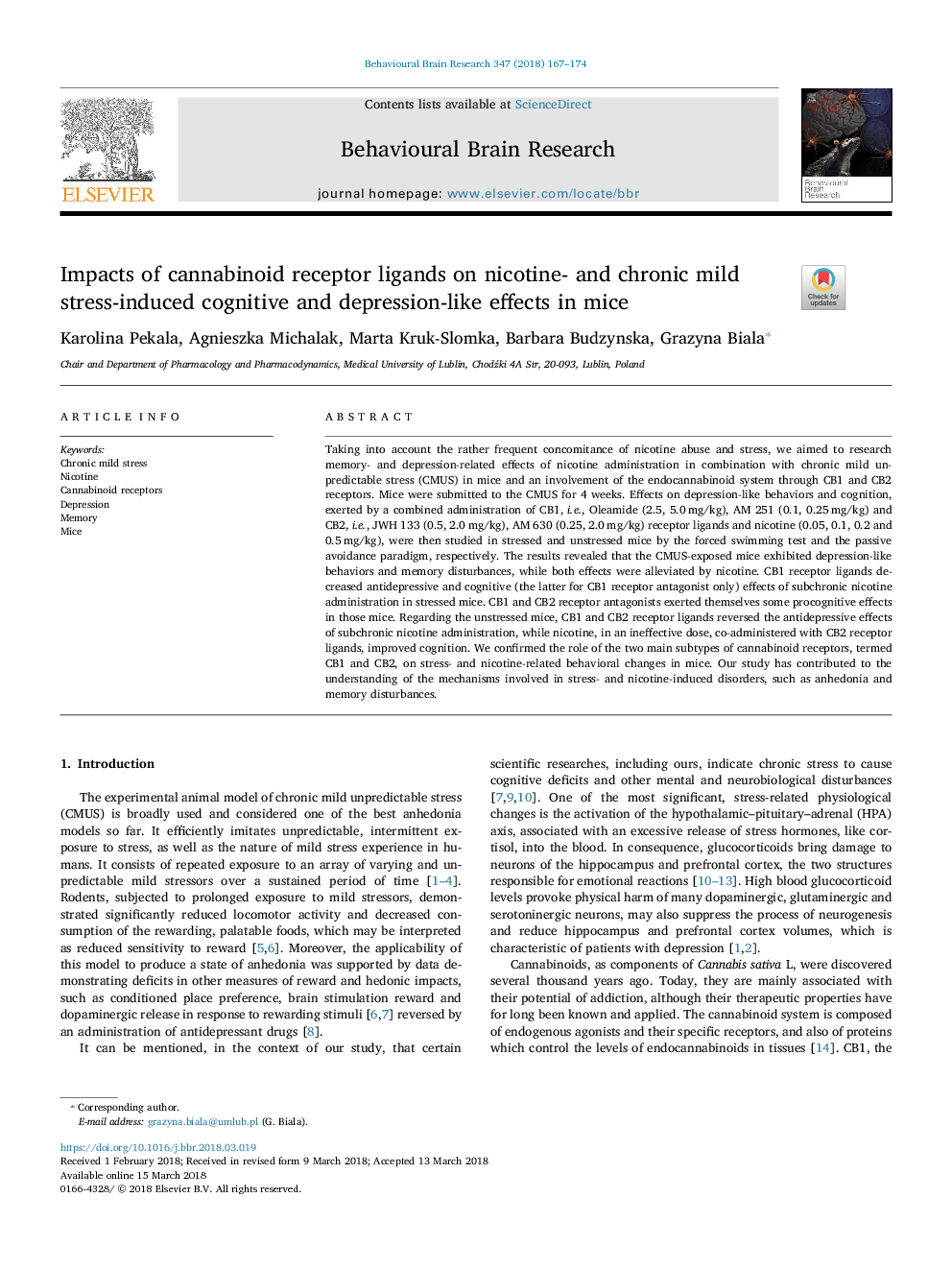Taking into account the rather frequent concomitance of nicotine abuse and stress, we aimed to research memory- and depression-related effects of nicotine administration in combination with chronic mild unpredictable stress (CMUS) in mice and an involvement of the endocannabinoid system through CB1 and CB2 receptors. Mice were submitted to the CMUS for 4 weeks. Effects on depression-like behaviors and cognition, exerted by a combined administration of CB1, i.e., Oleamide (2.5, 5.0â¯mg/kg), AM 251 (0.1, 0.25â¯mg/kg) and CB2, i.e., JWH 133 (0.5, 2.0â¯mg/kg), AM 630 (0.25, 2.0â¯mg/kg) receptor ligands and nicotine (0.05, 0.1, 0.2 and 0.5â¯mg/kg), were then studied in stressed and unstressed mice by the forced swimming test and the passive avoidance paradigm, respectively. The results revealed that the CMUS-exposed mice exhibited depression-like behaviors and memory disturbances, while both effects were alleviated by nicotine. CB1 receptor ligands decreased antidepressive and cognitive (the latter for CB1 receptor antagonist only) effects of subchronic nicotine administration in stressed mice. CB1 and CB2 receptor antagonists exerted themselves some procognitive effects in those mice. Regarding the unstressed mice, CB1 and CB2 receptor ligands reversed the antidepressive effects of subchronic nicotine administration, while nicotine, in an ineffective dose, co-administered with CB2 receptor ligands, improved cognition. We confirmed the role of the two main subtypes of cannabinoid receptors, termed CB1 and CB2, on stress- and nicotine-related behavioral changes in mice. Our study has contributed to the understanding of the mechanisms involved in stress- and nicotine-induced disorders, such as anhedonia and memory disturbances.


